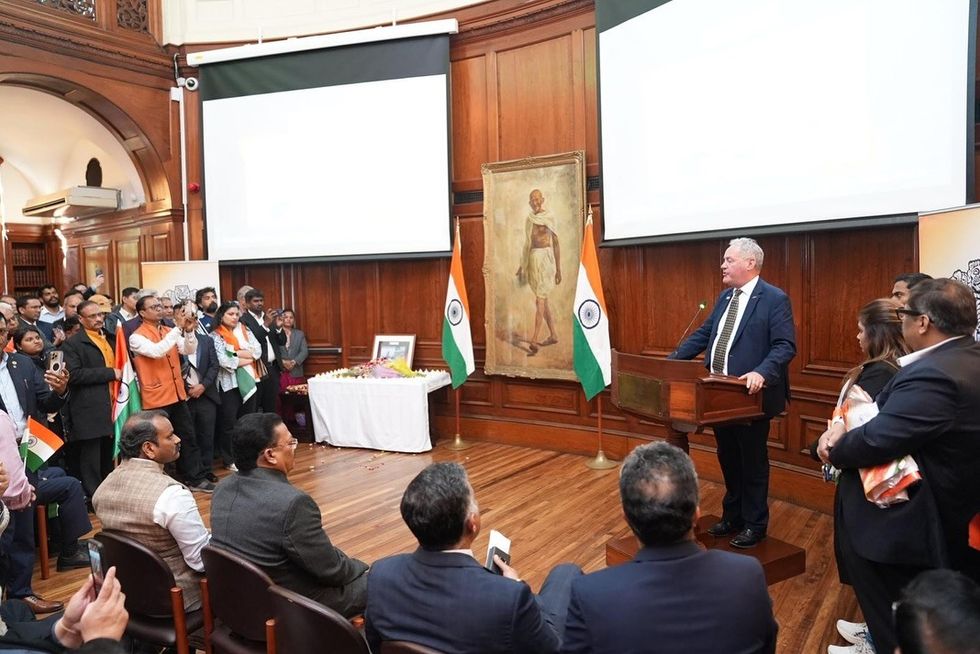by LAUREN CODLING
ETHNIC minorities are not getting enough physical activity due to “deep-rooted inequalities”, a leading governing body warned last week.
Research by Sport England last week cautioned of a stark ethnicity gap in sport which saw ethnic minorities falling short of the official physical activity targets. According to the data, only 55.1 per cent of Asians (excluding Chinese) reach the guideline of 150 minutes of physical activity per week compared to 62 per cent of white adults.
The report, which hopes to shine a “spotlight on the deep-rooted inequalities” within society also found people from Asian, Black and Chinese backgrounds are also far less likely to volunteer in sport and enjoy the benefits associated with it, analysis found.
Speaking last week, board member Chris Grant said it was “vitally important” that the sporting sector worked to close the ethnicity gap in sport participation. He also highlighted the “elevated level of discomfort” when talking about race and culture in sport.
“We need to get beyond this if we are genuinely going to do something about the ethnicity gap,” Grant said.
Trishan Patel is the director of Trishan Patel Coaching and assistant manager at Biggleswade United Football Club. Speaking to Eastern Eye, he believes a number of factors can affect the participation of ethnic minorities in sports and physical activity.
For example, cost can impact the level of participation by young people in sports. Some families are large and simply can’t afford the fees, Patel said. He also thinks there needs to be more engagement with parents in tackling the problem.
“It’s a trust thing in my opinion,” he said. “They are first generation and have probably been affected and scarred with their own misconceptions. It’s about education and letting them know there are opportunities out there for their children.”
In response to the findings, Manisha Tailor MBE, lead foundation phase at Queens Park Rangers’ academy in London, said there needed to be a joined-up approach to not only help solve the problem but “ensure that those helping to find solutions are equipped with the knowledge and understanding of the issues that affect different minority groups”.
However, Tailor and Patel agreed that organisations such as the Football Association (FA) had made steps to tackle the issue – although both acknowledged there was still a long way to go.
For instance, both have participated in a number of initiatives aiming to increase diversity and inclusion. Tailor is part of the FA’s Asian Women in Football National Working party which brings together women from across the football sector and the UK to challenge stereotypical norms and enforce change. Patel is part of a FA Development Group for BAME coaches who need support in preparation for the A Licence applications (a coaching qualification) in 2021.
Praising the FA, Patel said it was encouraging to see moves being made to address the problem. “This is what we want – action,” he said. “Not just research and things not being put in place. They are holding their hands up and engaging with us via networking events etc, and saying judge us on our actions and we want to hear from you.”
As well as sporting associations, Tailor claimed governing bodies, faith groups and community organisations are working to engage with those within their demographic. “Where some of these projects might be small, access to support and funding can ensure that they are able to continue with the much needed targeted work,” she said.
However, the lack of professional British Asian footballers in the industry is still a challenge, Patel said. “I think we have a very long way to go still,” he said. “I look into the elite game and don’t see many of Asian descent, and to be honest, it hurts. It can also be used as fuel to push you, but this is part of the process.”
In response to the report, a spokesperson for the FA stressed the organisation was committed to creating an inclusive and diverse game and would continue to support anyone who wants to enjoy football, regardless of their background. “We recognise the important role the FA continues to play in helping to break down barriers that may stop people from getting involved in football as all Asian communities have historically been underrepresented across all areas of the game,” the spokesperson told Eastern Eye, noting a number of initiatives they had implemented to drive change.
An England and Wales Cricket Board (ECB) spokesperson claimed they were working to ensure that people from all backgrounds and ethnicities felt they were part of the sport in England and Wales.
According to ECB research, 30 per cent of active cricketers in England and Wales self-identify as being of south Asian heritage. “This highlights the opportunity cricket has to help people in
ethnic minority groups be active,” the ECB spokesperson said.
In 2018, the ECB launched the South Asian Action Plan which has worked to install non-traditional playing facilities in urban areas and deliver cricket at schools with a higher than national average representation of BAME pupils. They added: “All of this work is a lengthy process, but the ECB is committed to making it a success.”



















 Bob Blackman MP speaks during the event
Bob Blackman MP speaks during the event